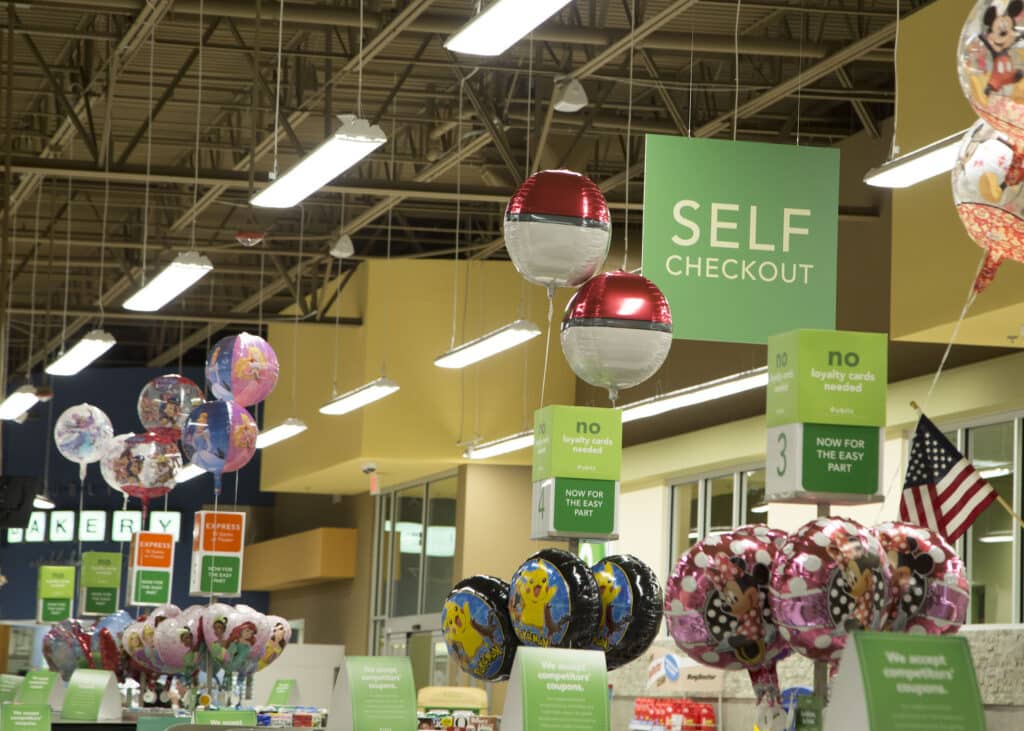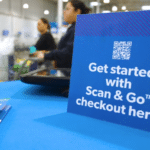
Hate self-checkout? Well, how would you feel about it if your store gave you a 20% discount for scanning and bagging your own groceries?
A second state is now considering making self-checkout discounts mandatory, as well as regulating how many self-checkouts a store can have, and protecting shoppers who accidentally scan their items incorrectly.
Democratic state representative Regina Goodwin of Oklahoma has introduced what she’s named the “Grocery Store Checkout Station Act.” It’s similar to a bill proposed last year in Rhode Island, in that it would mandate at least one traditional staffed checkout lane per self-checkout station in all grocery stores. It would also offer self-checkout users a discount, but Goodwin’s version ups the ante – Rhode Island proposed a 10% discount, while the Oklahoma bill would require stores to give you 20% off.
The new bill also addresses an issue that Rhode Island’s version didn’t mention – what happens if self-checkout users are accused of theft. “The general public is untrained” at operating store scanners, the bill reads. And when checking out with random-weight items like fruits and vegetables that can’t be scanned, “there is great potential for a customer to accidentally type in the wrong code by accident.” So “if a grocery store employee accuses a customer of theft,” the bill declares, “an arrest shall not be made… until the mechanic of the machine conducts an examination of the self-service checkout machine for malfunctions.”
The stated goal of the bill as written, is to prevent retailers from unfairly profiting off their customers and their employees. “Self-service checkout stations essentially turn customers into unpaid employees and allows grocery store retailers to decrease labor costs and actual customer service,” the measure reads. Self-checkouts also “contribute to retail workers feeling devalued,” and they allow retailers to employ more part-time workers, who earn low pay and no benefits.
All the while, the bill states, “grocery stores allow longer lines at traditional checkout stations staffed by an employee to encourage customers to use the self-service checkout stations.”
The promise of a 20% discount may be an eye-catching idea to self-checkout users. But in Rhode Island last year, retailers and business leaders slammed the proposal. “This bill is a gross overreach into private enterprise and will only create long lines and higher prices on groceries,” a representative for one business group complained. “Simply because a store offers an option for a customer to handle their own goods at the point of purchase should not give the state a right to regulate the number of machines (or) mandate a discount,” a grocery executive said.
And who’s to say grocery stores won’t fund a 20% self-checkout discount by raising their prices by 20% for everyone else?
The Rhode Island bill’s sponsor, Democratic state representative Megan Cotter, said her proposal was “meant to start a conversation about corporations’ ever-increasing use of self-checkout lanes to reduce the employment of cashiers.”
Start a conversation it did. And then it promptly died in committee before ever coming up for a vote. (Update: Cotter subsequently reintroduced a revised version of her bill last Friday, which would again limit the number of self-checkout stations per store, but makes no mention of any discount for self-checkout users this time.)
There’s no telling whether Goodwin’s bill is any more likely to become law in Oklahoma, or if it’s just another way for a lawmaker to show her constituents that she’s on their side, proposing a consumer-friendly bill that has little chance of actually becoming law. At the midpoint of the state’s legislative session last month, the Oklahoma legislature had proposed 3,079 bills, but only about 350 became law.
“Each year, there are a lot of bills that are filed that won’t see the light of day,” one state lawmaker told Oklahoma City’s KOCO-TV recently.
“Any member can file any bill they want,” another lawmaker told KOKH-TV. “Bills that aren’t looking to address serious problems, bills that are looking to address problems that just simply don’t exist, those things don’t end up making it through the process.”
That lawmaker wasn’t talking specifically about the self-checkout bill. It will be up to Goodwin’s colleagues to determine just how serious her measure is, or whether it was introduced just “to start a conversation.” And then other lawmakers in other states who see the press that a couple of legislators in Rhode Island and Oklahoma have gotten by addressing a hot-button issue like self-checkouts, may yet decide to start some conversations of their own.
Image source: Publix










